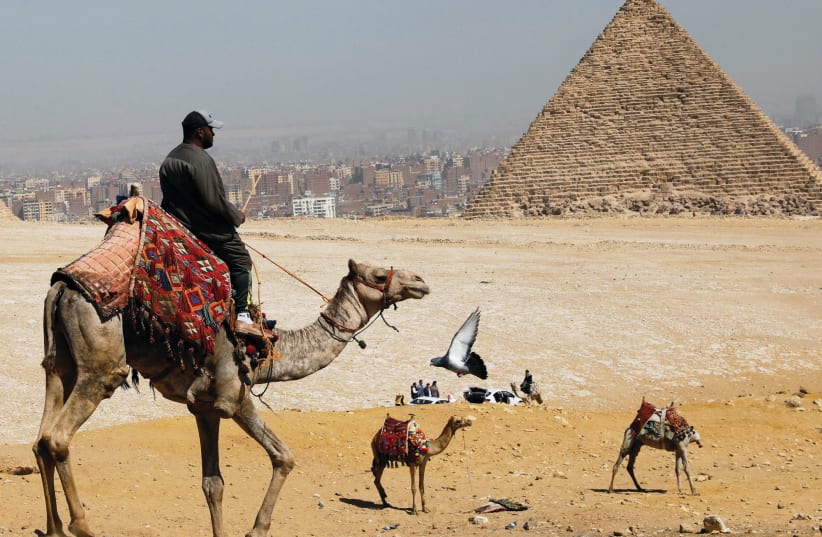The scheme takes visitors to a verdant strip of farmland thick with palm trees that runs south of the Giza pyramids, between the lesser known pyramids of Saqqara and Dahshur and the western bank of the Nile.
There they can get a glimpse of local communities as part of Visit Badrashin!, a sustainable tourism project funded by the European Union.
"When a tourist visits, they can pass by a farmer here and have a cup of tea in the fields, buy handicrafts from a woman selling them or eat traditional food from the area," said Heba Ragab, a tourism expert who works on the project.
The project includes the villages of Saqqara, Abu Sir and Dahshur, all in the district of Badrashin, and offers training to the local community in an effort to help them tap into tourism revenues and protect their livelihoods.
"They trained me on how to deal with clients; we never had any tourists come to this area," said Mohamed Hamdy, 31. "So now, I've become a local tour guide."
The coronavirus pandemic has reduced tourist arrivals in Egypt to a fraction of their previous levels and the project's activities have been scaled back, but visits have continued.
On one recent outing, a small group of tourists were taken on a tour of the Saqqara complex before being taken for a traditional fast-breaking evening meal nearby during the holy month of Ramadan.Women from the village rolled vine leaves, baked bread and grilled chicken, ending the meal with a few cups of mint-infused tea, sipped around an open fire.
